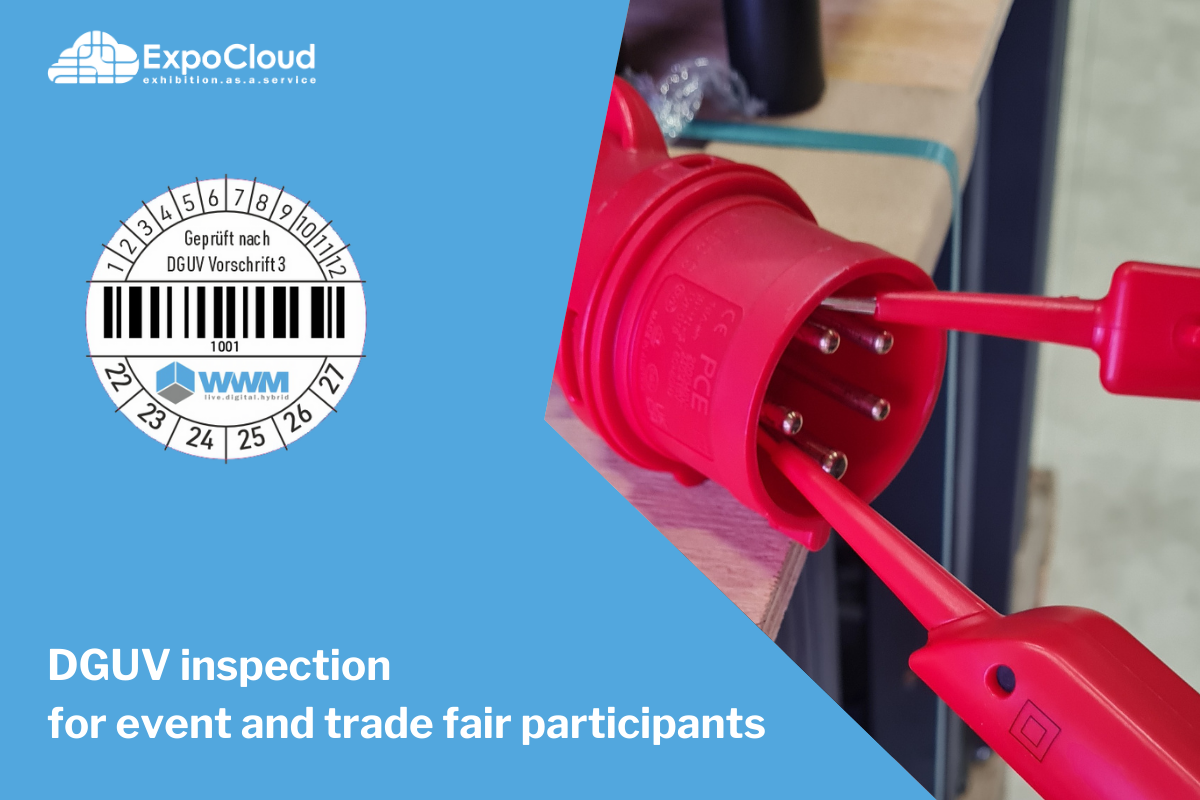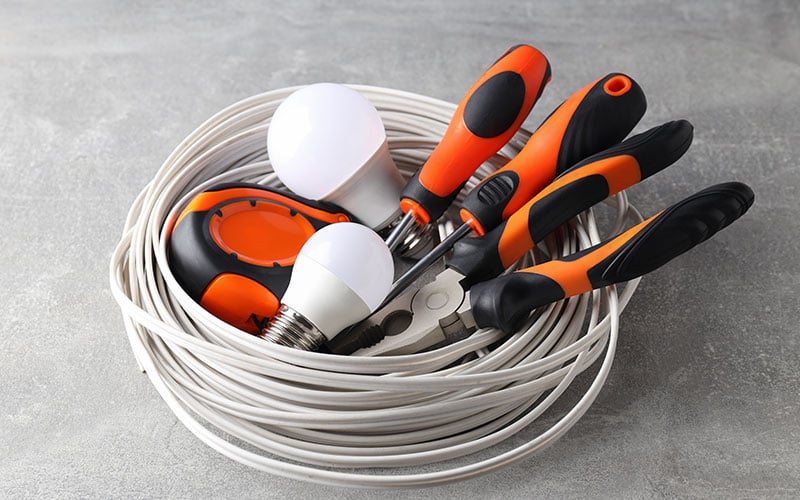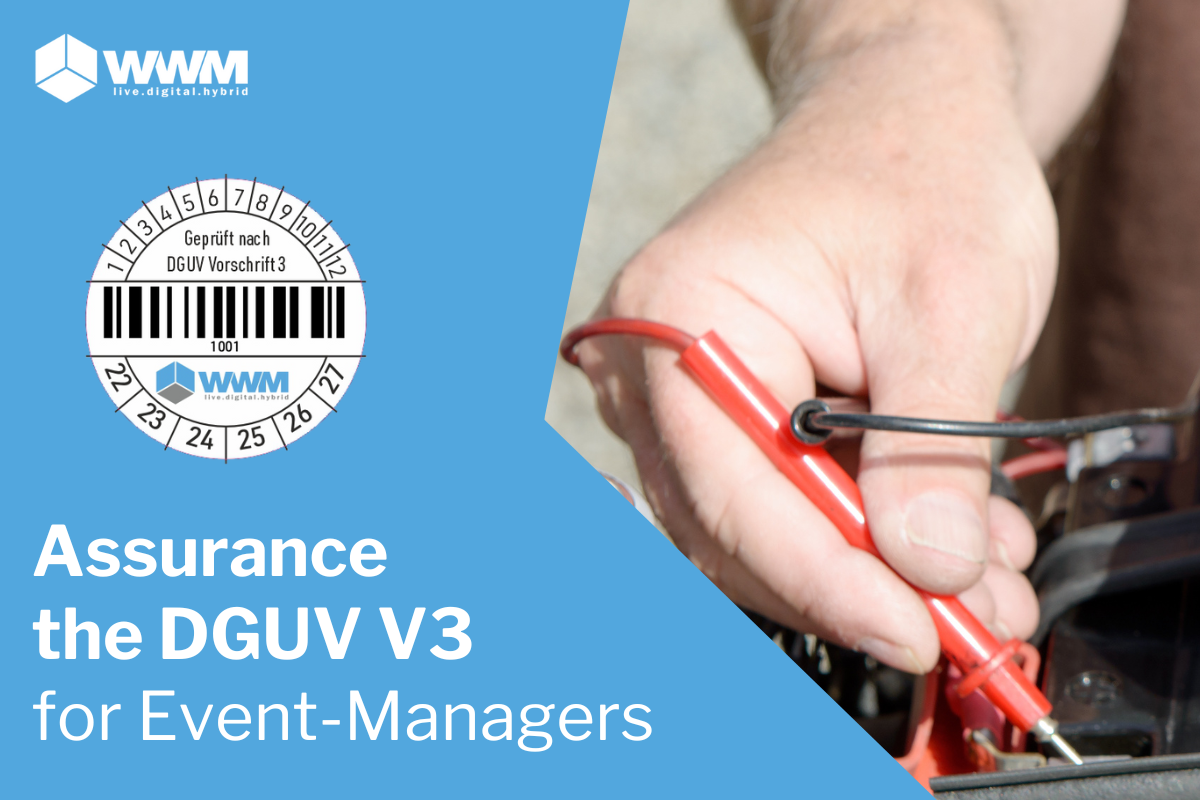Compliance management in trade fair construction
How ExpoCloud simplifies and automates compliance management In the world of exhibition stand construction, it's not just about creating impressive...
3 min read
 René Meures
:
Nov 8, 2024 3:00:00 PM
René Meures
:
Nov 8, 2024 3:00:00 PM

Republishing of this blog article from August 30, 2023.
Participating in events and trade fairs is an excellent opportunity for companies to present their products and services to a wide audience and make valuable business contacts. However, in addition to the obvious benefits, this type of event also presents certain challenges, particularly in relation to DGUV testing. In this article, we will take a closer look at why DGUV testing can pose major challenges for event and trade fair participants
The DGUV test, or the German Social Accident Insurance test, is a legally required inspection of work equipment and electrical systems. It aims to ensure the safety and health protection of employees and participants in working environments. This also includes events such as trade fairs and events where a large number of technical devices and systems are used.
Variety of equipment:
Trade fairs and events often include a wide range of technical equipment, from lighting systems to audio and video equipment to electronic displays. Each of these devices must be tested in accordance with DGUV regulations, which can be a time-consuming and costly task.
Time constraints:
Trade fairs and events are usually time-limited, which further restricts the timeframe for carrying out DGUV testing. Participants must ensure that inspections are carried out properly without disrupting the smooth running of the event.
Coordination with service providers:
Event and trade fair participants often procure services from external providers, e.g. for technical equipment or stand construction. Coordinating these service providers for the DGUV inspection can be complex as they may have different schedules and priorities.
Liability issues:
Liability issues could arise in the event of an accident or injury during the event. Proper DGUV testing can help reduce the risk of accidents and avoid legal consequences.
Overcoming the challenges:
Early planning
Start planning the DGUV inspection early to allow sufficient time for coordination and implementation without jeopardizing the event
Communication with service providers
Ensure that all service providers involved are aware of the need for the DGUV inspection and coordinate their activities accordingly.
Involve expert knowledge
To carry out a DGUV inspection safely, you must involve experts or certified inspectors to ensure that all requirements are met.
Documentation
Keep a proper written record of all tests and results. This not only serves to ensure compliance with the regulations, but also to protect yourself in the event of disputes. Furthermore, a DGUV test is valid for one year. Once the test certificate has expired, the corresponding equipment may no longer be used.
Overall, the DGUV test is undoubtedly a challenging task for event and trade fair participants. The variety of equipment, the time constraints and the need to coordinate with various partners require careful planning and execution. However, by proactively addressing these challenges and incorporating expertise, companies can ensure that their events not only run successfully but also meet the highest safety standards.

Despite the challenges, the DGUV test also offers a number of benefits for event and trade fair participants:
Ensuring safety
The main objective of the DGUV test is to ensure the safety of employees, participants and visitors. By regularly testing technical equipment and systems, potential risks can be identified and eliminated at an early stage, minimizing the risk of accidents.
Legal compliance
The DGUV test is required by law and helps to ensure that companies comply with the relevant safety regulations. Proper performance of the test protects against legal consequences in the event of accidents or injuries.
Image and trust
Companies that take care of the health and safety of their employees and customers radiate trust and professionalism. This can strengthen a company's image and encourage customers to do business with the company.
Efficient events
A well-planned and executed DGUV inspection can help ensure the smooth running of events and trade fairs. Minimizing technical failures helps to optimize the event process.
Early preparation
Start preparing for the DGUV inspection as early as possible. Create a schedule that provides sufficient buffer for unexpected events.
Clear communication
Communicate the requirements of the DGUV inspection clearly to all parties involved, including service providers and employees.
Professional help
Call in professional inspectors or experts to ensure that the inspection is carried out properly.
Documentation
Keep careful records of all inspections, results and maintenance work. This is important not only for compliance, but also for long-term safety.
Regular updating
Technical equipment and safety regulations can change. Make sure you keep up to date with the latest developments and adapt your inspections accordingly.
In conclusion, it can be said that the DGUV inspection is undoubtedly a challenging task for event and trade fair participants. However, the safety and well-being of employees, participants and customers should always be a top priority. By proactively addressing the challenges, enlisting professional help and recognizing the benefits of DGUV testing, companies can ensure successful and safe events that enhance their reputation in the long term.
In this complex world of events and exhibitions, it is reassuring to know that partners like WWM GmbH & Co. KG exist. As a company, we understand the challenges of DGUV testing and with ExpoCloud we offer the ideal solution for your problem. All aspects of the inspection are carefully documented in ExpoCloud. Our specialist staff will carry out and update the inspections for you in accordance with legal requirements. We are your reliable companion who not only ensures safety, but also supports the success of events.

How ExpoCloud simplifies and automates compliance management In the world of exhibition stand construction, it's not just about creating impressive...

DGUV Regulation 3 on the necessity of testing electrical systems and equipment was published back in 1979. Essentially, this regulation obliges the...

The COVID-19 pandemic has presented the entire trade fair and events industry with massive challenges. While the exhibition and event departments of...